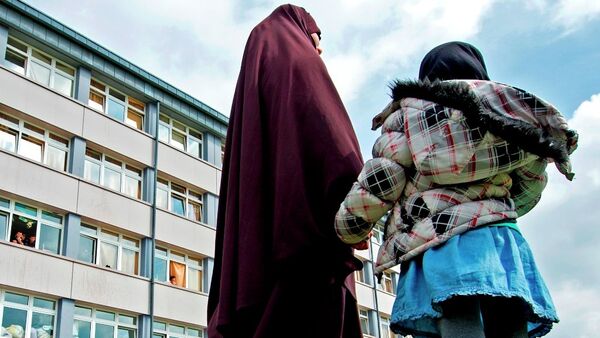The European Commission has called for a quota system for all EU member states to process asylum seekers and offer 20,000 additional resettlement places to refugees from outside the EU — a system backed by Germany, but wholeheartedly rejected by Britain and many other EU countries.
An EU quota trading system for refugees would offer a fair method for alleviating Europe’s migration crisis http://t.co/x3II9hSpfV
— Patrick Dunleavy (@PJDunleavy) June 7, 2015
Authorities in Germany expect around 450,000 people seeking asylum to arrive in the country this year.
"Many people who come to us fleeing war and displacement will stay for a long time, maybe forever," says Ingo Kramer, president of the National Union of Employers', who are calling for the German government to make it easier for asylum seekers to get jobs in Germany.
"It's in everyone's interest to do everything so that these people can integrate quickly into the labour market."
Joining the calls for asylum seekers to be encouraged with their ambitions is Eric Schweitzer, president of the German Chambers of Commerce and Industry who says that "asylum seekers with prospects of staying, and people with humanitarian leave to remain, who are entering education, should be able to finish that without worrying about being expelled."
#Frankfurt, #Germany #13Jun: Over 1,500 people on the streets demanding decent accommodation for refugees, the right> pic.twitter.com/sZ0PYQC4b2
— th anonymous (@ori_no_co) June 14, 2015
The European Commission has agreed to double the money for EU states to cover the administrative and accommodation costs of processing and integrating new refugees.
#EU: Refugees are welcomed! // Zero refugee quota countries: #Qatar #SaudiArabia #SAE #Kuwait #Bahrain #Russia #Japan pic.twitter.com/L7MEddP9uu
— Střední třída v ČR (@Stredni_trida) June 11, 2015
Meanwhile, a new report published by Amnesty International is calling for a radical change in the way the world deals with refugees.
"We are witnessing the worst refugee crisis of our era, with millions of women, men and children struggling to survive amidst brutal wars, networks of people traffickers and governments who pursue selfish political interests instead of showing basic human compassion," said Salil Shetty, Amnesty International's Secretary General.
States like Germany, UK, France etc doing everything possible to deter refugees reaching their borders.
— Teacher Dude (@teacherdude) June 15, 2015
'The Global Refugee Crisis: A Conspiracy of Neglect' has been published ahead of World Refugee Day on 20 June. Chancellor Angela Merkel is to meet EU state leaders in Berlin this week for a special conference on refugee policy.




